The Tarascon Castle
Cultural and historical site
50 min
view point
Description
This castle is particularly impressive. A castle as you would imagine it to be. The walls and towers are particularly high and the courtyards are therefore extremely dark. Apart from the furniture, everything is completely preserved and renovated.
Like any self-respecting castle, it also has a dark history, which, however, does not date back to its heyday in the 15th century. The interior walls are covered with numerous graffiti by foreigners who were imprisoned here without a court sentence. They often state their age, name and origin. The reason: from the 18th century until 1926, the castle served as a prison, among others for seamen of hostile nations.
No reproduction is permitted without the written consent of the author. (id6651)
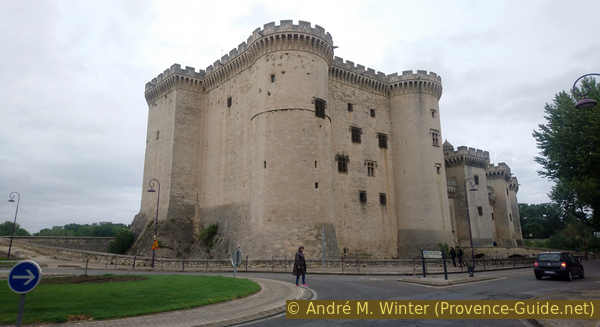
Tarascon castle
Site history
A castle existed here from the beginning of the 11th century. It controlled the political border of the Rhône, on the edge of which it was built. It was a rampart of the Dukes of Anjou who gradually imposed the royal power of France in Provence.
It was rebuilt in 1435 in a gothic and renaissance style, and served more as a prestigious meeting place than for war purposes.
Towards the end of the 15th century, it was only used occasionally, as Provence was then integrated into the kingdom of France. It then only asserted a local power and the transformation into a prison was only a logical consequence.
No reproduction is permitted without the written consent of the author. (id6652)
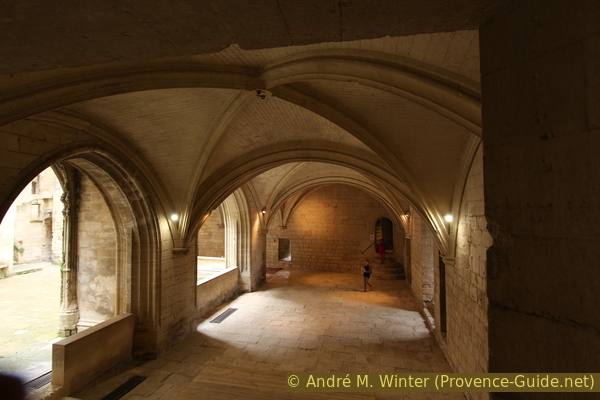
The ground floor is open to the Cour d'Honneur
The prison of the castle of Tarascon
Military and commercial sailors from enemy nations were imprisoned here. This was commonplace until the end of the First World War. These people were normally imprisoned for the duration of the conflict and released afterwards. Thus the Citadel of St. Tropez was also one of these places of confinement, it can be reached on the Hike to St. Tropez.
Paradoxically, its use as a prison for nearly four centuries has preserved this castle otherwise destined for ruin.
Most of the other holding facilities have since been destroyed, but this castle has remained standing and so have engravings and graffiti on the walls and terraces of the castle. They are written in several languages tracing the different nations that have unwittingly spent time here: English, Belgians, Italians, etc.
These notes often contain the name, a year or the age of the prisoner. A lower chamber, used as a dungeon in the 15th century, is remarkable for the number of graffiti of ships and fighting galleys, engraved and coloured by Catalan sailors. This is similar to the engravings found while walking along the Cap Sicié.
No reproduction is permitted without the written consent of the author. (id6657)
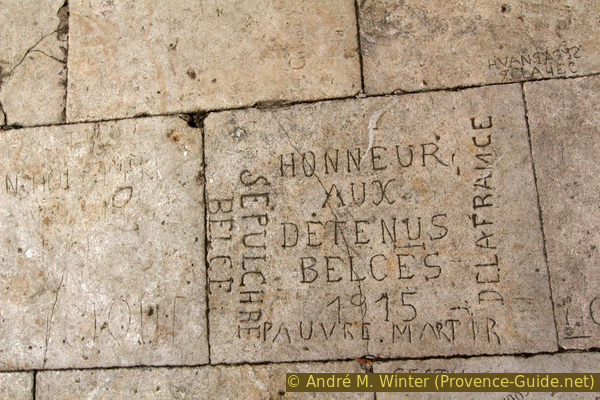
Engraving Honours to Belgian prisoners 1915
The entry fee is EUR8,- in 2023.
No reproduction is permitted without the written consent of the author. (id6654)
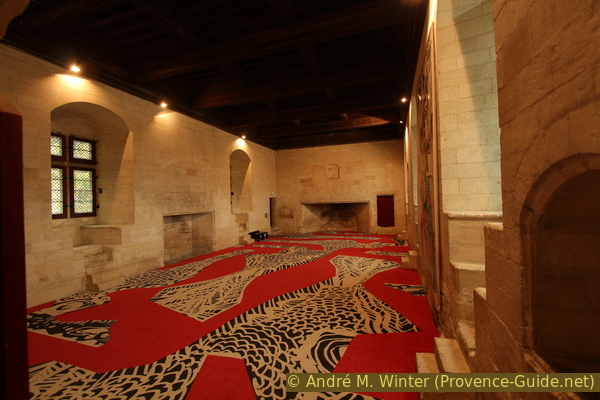
Ballroom of Tarascon castle
Access by public transport
Tarascon is accessible by train. Tarascon-sur-Rhône station is mainly served by regional lines TER PACA (only french).
Leave the train station to the north and walk through a car park and a park. Turn left onto the wide Cours Aristide Briand and turn right at the first roundabout into Rue des Halles. Proceed here to the Place du Marché and turn left into Rue du Château. You still have to cross the Boulevard du Roi René, the access by the bridge is visible on the left.
Access by car
Tarascon lies on the banks of the Rhône between Arles to the south and Avignon to the north. The large D570N connects the towns and allows you to reach Tarascon. Take the direction of Baucaire. Go up the bridge ramp, but do not cross it and follow the signs to the Château.
Parking site
You will then go around the free dedicated and recommended car park.
No reproduction is permitted without the written consent of the author. (id6655)
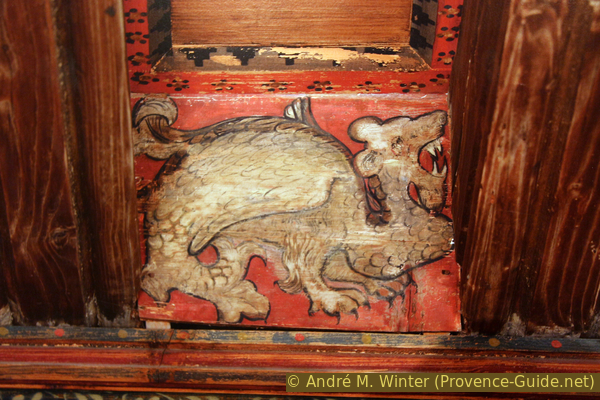
Fantastic bestiary on the ceiling of the state room of Louis II and Yolande of Aragon
No reproduction is permitted without the written consent of the author. (id6656)
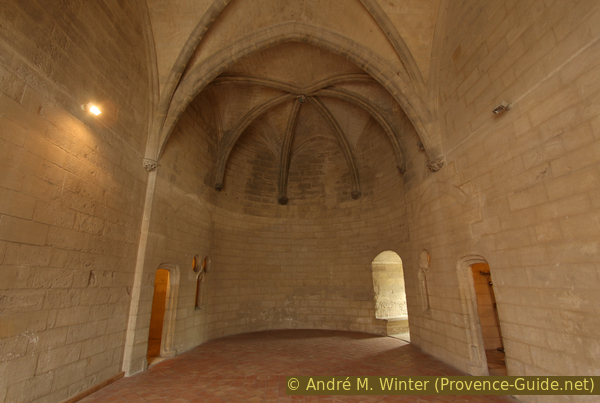
Private chapel of the princes of Tarascon castle
No reproduction is permitted without the written consent of the author. (id6658)
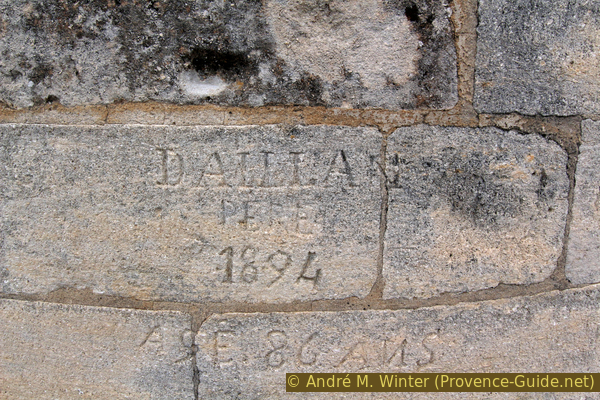
Trace by Dallan Père from 1894 age 86 years
No reproduction is permitted without the written consent of the author. (id6659)
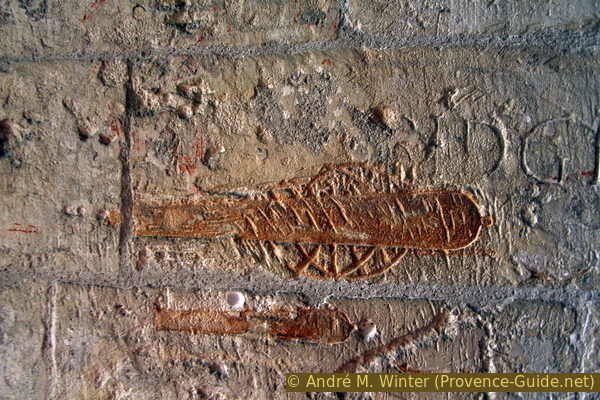
Cannon engraved by prisoners
No reproduction is permitted without the written consent of the author. (id6660)
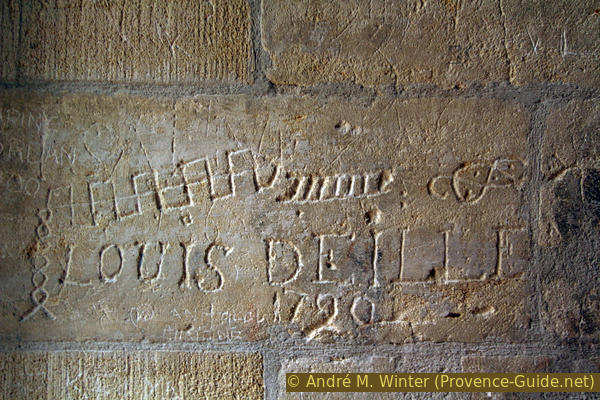
Trace by Louis Deille from 1720
No reproduction is permitted without the written consent of the author. (id6662)
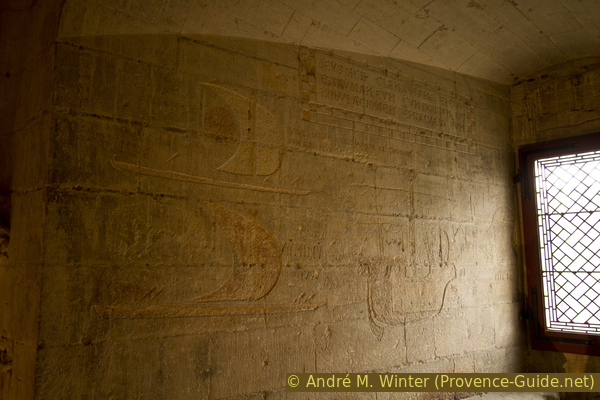
Battle galley and Latin text engraved by prisoners
No reproduction is permitted without the written consent of the author. (id6663)
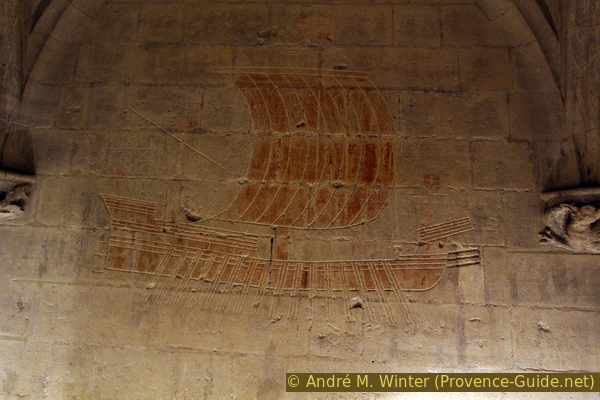
Battle galley in graffiti engraved by prisoners
No reproduction is permitted without the written consent of the author. (id6664)
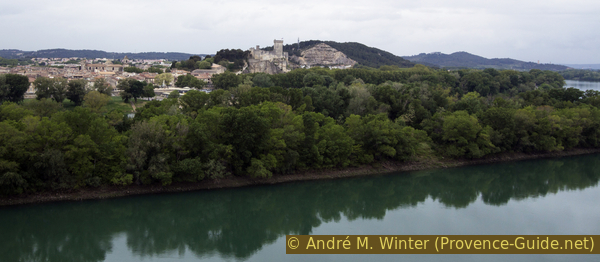
Beaucaire and its castle on the other side
No reproduction is permitted without the written consent of the author. (id6665)
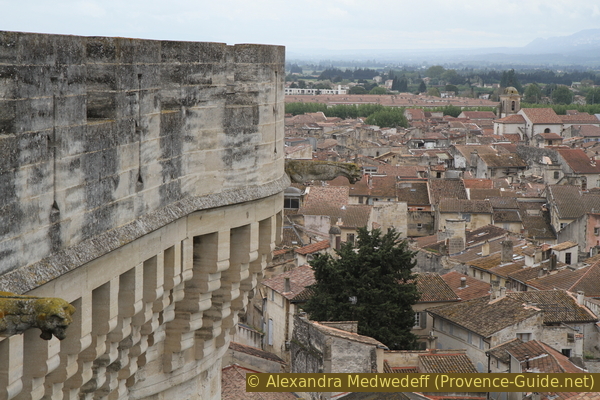
Tarascon castle battlements and the town below
No reproduction is permitted without the written consent of the author. (id6653)
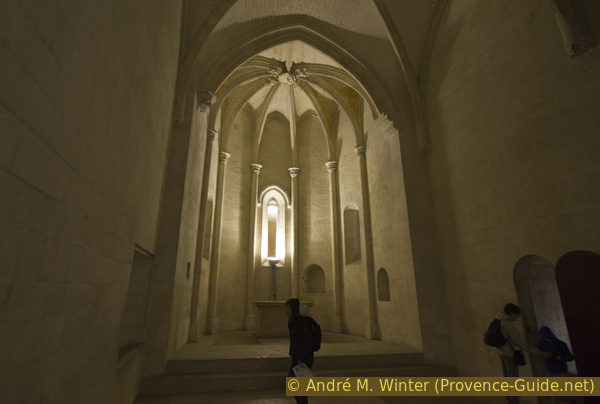
Chapelle de la Vierge in Tarascon castle
No reproduction is permitted without the written consent of the author. (id6666)
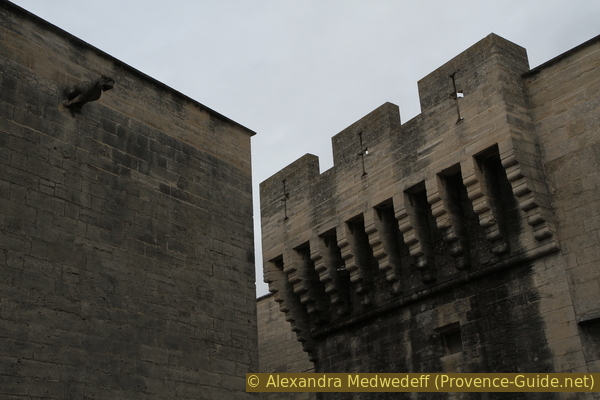
Merlons, loopholes and machicolations of the keep
No reproduction is permitted without the written consent of the author. (id6661)
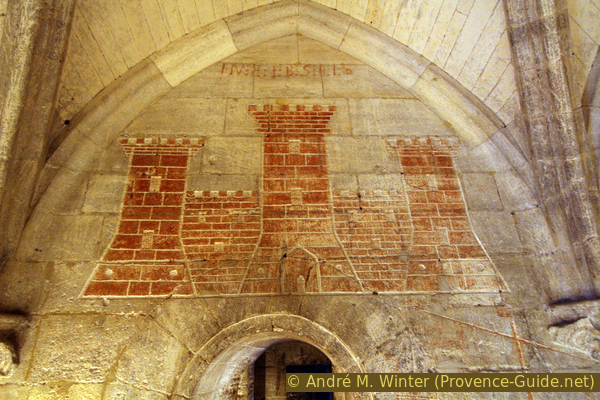
Big castle engraved by prisoners